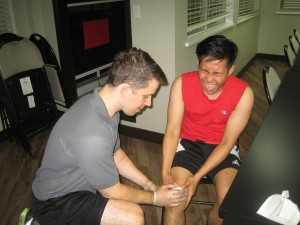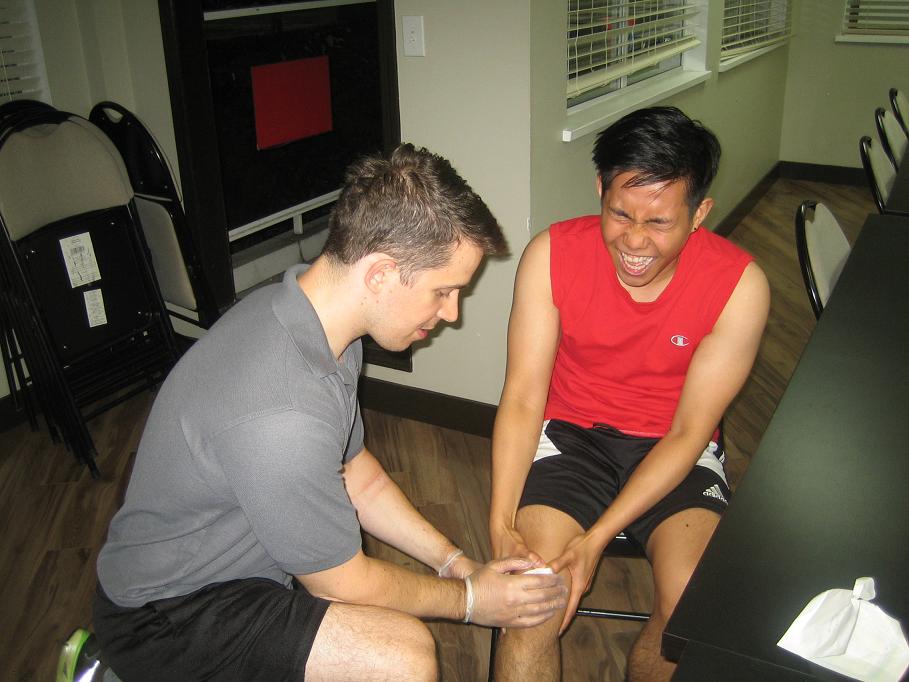The presence of fluid in the knee or knee effusion can be triggered by various conditions. Always bear in mind that the joints naturally contain fluid for lubrication and serving as a cushion for the joint during movement.
Once there is fluid in the knee, the affected knee becomes swollen, painful and stiff or there is bruising and discoloration. It is recommended to consult a doctor so that a diagnosis can be given. The doctor will require an X-ray, blood test or even aspirate fluid to check the exact cause of the fluid in the knee.
Overuse
Strenuous exercise or training that is beyond the capacity of the individual can lead to knee pain and swelling. Aside from proper training, it is vital to engage in correct warm-up and cooling down exercises to prevent overuse of the knee. The development of bursitis which involves inflammation of the bursa sacs in the joint, tendonitis or inflammation of the tendons and knee strains and sprains can cause fluid in the knee due to overuse.

Injuries
Once the body is injured, the immune system reacts to protect the area. As part of the reaction, it often includes swelling. The injuries that lead to swelling can lead to excess fluid in the knee joint.
These injuries include tears to the ligaments, muscles and tendons that support the joint as well as fractures. The use of braces, pain and anti-inflammatory medications can manage the swelling from these injuries. In severe cases, it might be required to drain the knee or undergo surgery to deal with the underlying condition.
Infection
An infected knee joint can result to swelling and fluid in the knee. Some cases of infections that can cause fluid in the knee include tuberculosis, Lyme disease and certain forms of infectious arthritis.
In case infection is the cause, other symptoms might be present such as nausea, fever, chills, unexplained weight loss and abdominal cramping. Blood testing and joint aspiration is required to determine if infection is present.
Arthritis
Osteoarthritis and rheumatoid arthritis are the most common forms of arthritis that affect both the knee and lead to fluid in the knee. For osteoarthritis, the cartilage wears out and rubs on bone. As for rheumatoid arthritis, it is an autoimmune condition where the immune system attacks the synovial lining of the joint.
Both conditions can result to pain, swelling, stiffness and deformity of the joint. As for gout which leads to abnormal accumulation of uric acid in the joint, it also causes fluid in the knee that leads to swelling. An MRI, X-ray or blood test can be used to detect if arthritis is the cause for the fluid in the knee as well as the type present.

